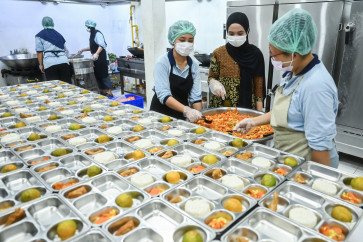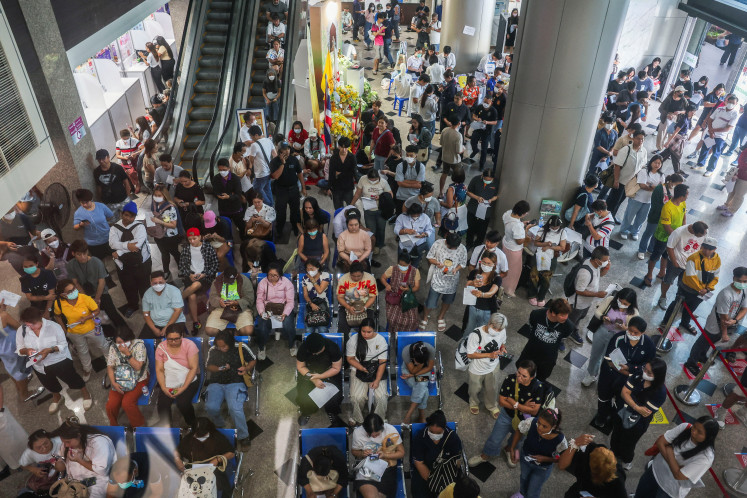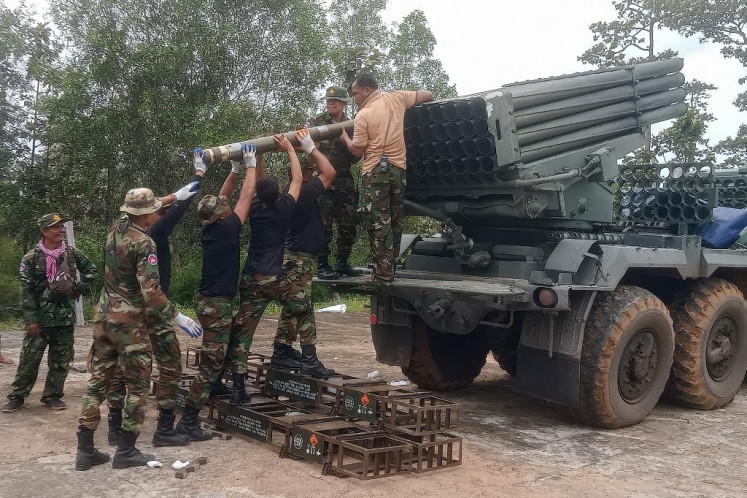Popular Reads
Top Results
Can't find what you're looking for?
View all search resultsPopular Reads
Top Results
Can't find what you're looking for?
View all search resultsLetter: Turning waste into gold
I was greatly impressed after reading the article “Starting from zero” in The Jakarta Post on Sept
Change text size
Gift Premium Articles
to Anyone
I
was greatly impressed after reading the article “Starting from zero” in The Jakarta Post on Sept. 12, 2011, page 21, about Salakan village in Yogyakarta, which has become a model eco-village promoting waste management techniques, generating income for the people (the article says that 20 percent of the people have become wealthier because of the waste program) and also protecting the environment.
I am a grade 10 student of GMIS, Jakarta. I recently researched solid waste management and its conversion to biogas and manure. The process of solid waste conversion that I learned about is called Bio-Methanation.
In this process, biodegradable organic waste is treated in an anaerobic condition to generate biogas methane and excellent organic manure as a byproduct.
Along with municipal solids, any organic waste from the food industry, fruit and vegetable industry, industries like the sugar industry, pulp and paper, leather, cattle and poultry industries, and canteen, hotel and slaughterhouse waste can also be processed to generate biogas.
This technology can provide a cheaper and alternative fuel source; recycle all the solid waste generated by the various human activities. It will also prove beneficial to the environment.
It will not only prevent the uncontrolled decomposition of organic matter in landfills but it will also provide excellent manure to grow crops.
I am sure this technology is going to benefit both the rural and urban societies like Salakan village, which has taken a step in this direction.
Although initial capital is required, this can be funded by banks, government and NGOs, it is estimated that the people will have a good return on their investment as the main feed stock that they use is free and plentiful.
If a village like Salakan with poor farmers and laborers can think of turning their waste into a gold mine, can we people in urban areas and metropolitan cities also work in this direction?
With waste growing day by day I think it’s time for us people in the cities to stop, think, act and follow the example set by the villagers of Salakan.
Aditya Ganesan
Jakarta










